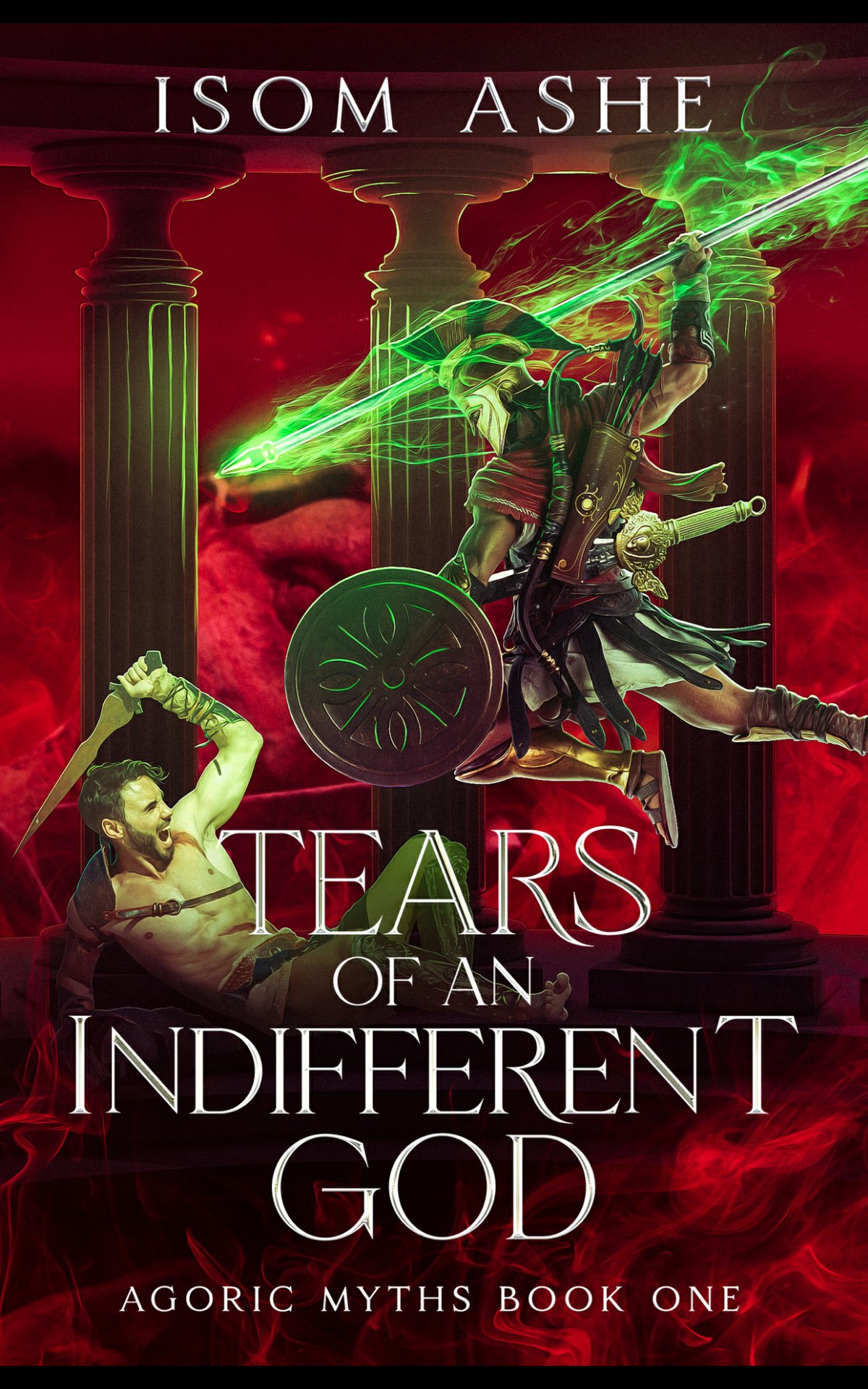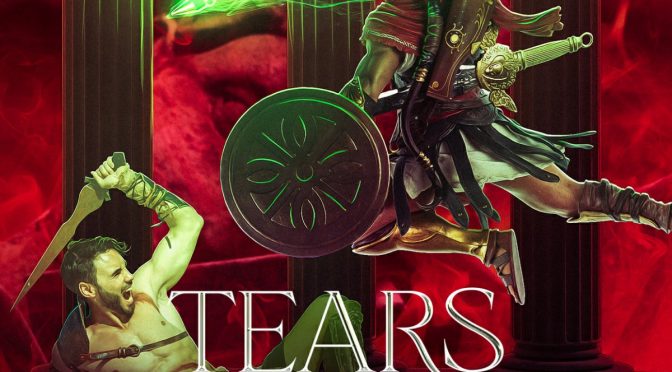Agoric Myths Book One by Isom Ashe
Reviewed by
![]()
Welcome to Tears of an Indifferent God, a not-so-Greek mythological world where heroes are not what they seem and where pretty much every man and woman is bisexual! This book is comparable to a visit to the dentist: it hurts, it sucks, and we can’t wait to be done and over with!
But let’s take it all one breath at a time…
It’s not clear why the author decided to take all the most popular elements of Greek mythology and simply give them all different names. I understand taking inspiration from ancient mythology but to simply take well defined legends and just assign them new names seems lazy at best. So instead of Mount Olympus we now have Mount Arimus; instead of Aphrodite Goddess of Love we have Terha Goddess of Ecstasy, Zeus is now replaced by Gracix…You get the idea.
Hindsight, I speculate to believe that these lazy alterations were made intentionally by the author as to get away with the horrendous liberties he decided to take in order to ‘modernize’ some of the most ancient and most beloved legends.
CREATIVE LIBERTIES?
Despite the fact that we’re supposed to witness a mythological civilization, with fantastic characters and ethereal gods, it all feels very XXI century. The dialogue, the thinking process of the characters, even that weird Disney/MCU superhero vibe, at times!
You have Gordon, the legendary hero and the people’s champ, who is part of the Helios League of Heroes. You have Solacles, our MC, who keeps blaming Gordon for the death of his parents when he was still a child. You have Agda, Sola’s girlfriend (or not, since she sleeps with everything with a pulse?) who just wants to party and have fun, since the prospect of marriage is viewed as a daunting burden. You have capricious gods with hearing impairments like Terha, who can’t hear what a mortal is saying if other mortals are talking over him (not kidding!) and who feels the urge to expose herself whenever she witnesses mortals engage in debauchery!
PLOT:
The plot stems from a series of the most illogical decisions made by these characters. It seems as if anything goes as long as it helps move the plot a certain direction. Nothing feels organic: Sola, our MC, gets promoted to commander in chief for simply stabbing a minotaur in the back and with zero military experience. Gordon, the greatest warrior of all times, who has a resume of slaying giants and demigods, ends up falling to a few stab wounds inflicted by bird men wearing feather suits! All these weird decisions just so that the plot can move where the author wants it to move, no matter how nonsensical it all feels.

NO REDEEMING QUALITIES:
What all these characters share is that none seems to possess any redeeming qualities. As we read about their ‘adventures’ it’s hard to feel emotionally invested in any of them. Sola, the MC, is described as someone who, when feeling down, ”often hid himself in the arms of a man or woman and drank away his sorrows”.
Agda, Sola’s female supporting character, will sleep with anybody and everybody without a blink of an eye, yet she stands by Sola’s side ‘faithfully’…
Gordon, the warrior/hero is the typical dumb jock who can only think with his muscles and lives to slay monsters and bed women (and men).
CONCLUSION:
To me this book felt as though the author was indulging himself in creating a fictional world that represents perhaps his ideal utopia. Homosexuality, heavy drinking, gods who act more like children than even human adults. A world where friendship without sex does not exist, where monogamy is scoffed at, where family is whatever we want it to be…or nothing at all.
This is exactly what is wrong with modern fantasy literature in our times. These authors not only fail to catch the nature of mythology but their use of these legendary icons comes across as shallow and superficial, with the only purpose to twist them in ways as to confirm and reinforce their modern progressive perceptions.
🦀

